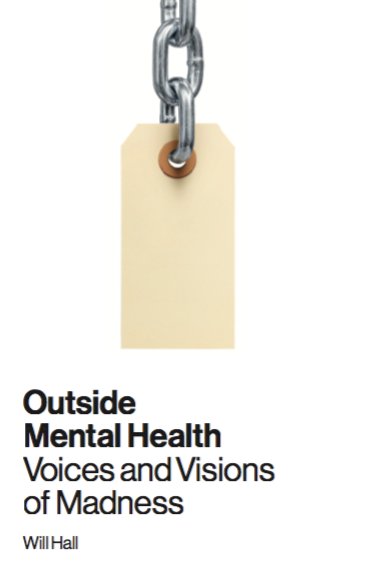NPR Morning Edition Features Madness Radio Interview with Judi Chamberlin
National Public Radio’s Morning Edition just did a piece on Judi Chamberlin that uses the interview Madness Radio did with her in 2006; here’s the text of the story and you can listen to it on the NPR site (or listen to the entire Judi Chamberlin interview on Madness Radio here:
https://www.madnessradio.net/madness-radio-judi-chamberlin-psychiatric-survivor-movement
Advocate For People With Mental Illnesses Dies
by Joseph Shapiro
http://www.npr.org/templates/story/story.php?storyId=122706192
Judi Chamberlin, who died this weekend at age 65, was a civil rights hero from a civil rights movement you may have never heard of. She took her inspiration from the heroes of other civil rights movements to start something she liked to call Mad Pride — a movement for the rights and dignity of people with mental illness.
It started in 1966, when Chamberlin was 21 years old and seeing her doctor because she was dealing with a deep depression. “After a while, he suggested I sign myself into a hospital because I was just not functioning, I was so depressed. And I just thought, ‘Oh a hospital’s a place where you get help.’ And you know, I’d been in hospitals for surgery and things like that, and didn’t think of it as having anything to do with your fundamental rights. So I just said, ‘OK, I’ll try it.'”
Chamberlin told her story in a 2006 interview with Will Hall, host of Madness Radio, a program by people like Chamberlin who call themselves “psychiatric survivors.”
“And very quickly, [I] found out that once you sign papers to go in on a voluntary basis, but then you can’t leave when you want to leave, which was absolutely shocking to me,” she said.
She got out of that state hospital and moved to Vancouver, British Columbia, where she lived with other people who’d been diagnosed with mental illness but who’d then gotten government money to develop their own treatments. She recovered and eventually moved to Boston, where she started working with other former American patients who wanted to change the system. They called themselves the Mental Patients Liberation Front.
“When I arrived at this storefront in Cambridge, Mass., I was a senior Harvard student, had been locked up five times, so I was referred by Harvard to volunteer there,” recalls David Oaks, who came to the group in 1976. “And I walked in, and it was a little radical ragtag group, Mental Patients Liberation Front. And Judi was right in the thick of folks, just really warm, community organizer.”
Oaks now runs his own advocacy group, MindFreedom International. Chamberlin was a mentor. “One thing she immediately helped teach a lot of people was basic 101 about mental health liberation: That we’re equal; that we have rights.”
One thing she immediately helped teach a lot of people was basic 101 about mental health liberation: That we’re equal; that we have rights.- David Oaks, of MindFreedom International.
Chamberlin put that basic thinking into a book called On Our Own, which published in 1978. In it, she argued that, as she’d experienced in Canada, just the ability to have some say in your own treatment was a key part of making that treatment work.
Chamberlin’s book became a manifesto for other patients. But it influenced lots of people in the mental health establishment, too. Today, notes Oaks, it’s common for people with mental illness to have a say. “Most U.S. states now have an office of mental health consumer affairs or something to hear the voice of mental health clients,” says Oaks. “And it certainly is people like Judi that did that.”
Robert Whitaker, the author of Mad in America, a history of the treatment of people with mental illness in America, says Chamberlin was “a seminal figure in the rise of the consumer movement.” She was able to get across the patient’s point of view in a way that was strong, but also clear. And that appealed to people in the mental health field who were often the target of her criticism.
“Judi was fierce, incredibly fierce,” says Whitaker. “And by that I mean she knew her mind, she spoke her mind, and she didn’t worry if she offended people who were listening.”
Chamberlin, he says, was irreverent, “brilliant” and “a joy to be around.” He also says she was “incredibly brave,” because “it obviously takes a lot of bravery to confront a society that’s had a different belief before.”
Chamberlin told people with mental illness that they were, like everyone else, people with quirks and differences, but with strengths and abilities, too. She wanted people to reclaim the description “mad” as something that was OK.
“She changed it from a word that was a pejorative word,” says Whitaker. “That was saying to the world at large: We are worthy individuals, and our minds our worthy, and they’re to be respected.”
Chamberlin even used “mad pride” as her e-mail address. “And you can see the historical echoes with ‘black pride’ as well,” says Whitaker. “It absolutely followed in the footsteps of the civil rights movement.”
Chamberlin traveled the world as an advocate, even in the months before her death. She worked at Boston University on mental health issues and started a center with federal funding to support other psychiatric survivors.
More recently, Chamberlin faced another illness: lung disease. And last year, when her insurance company told her she’d exhausted her hospice benefit, she faced going into a nursing home. She started a blog she called Life as a Hospice Patient about her fight to die at home.
Late Saturday night, she died as she wished: at home, in her favorite chair, surrounded by friends and family.





























 Creative Commons 2.5 copyright
Creative Commons 2.5 copyright